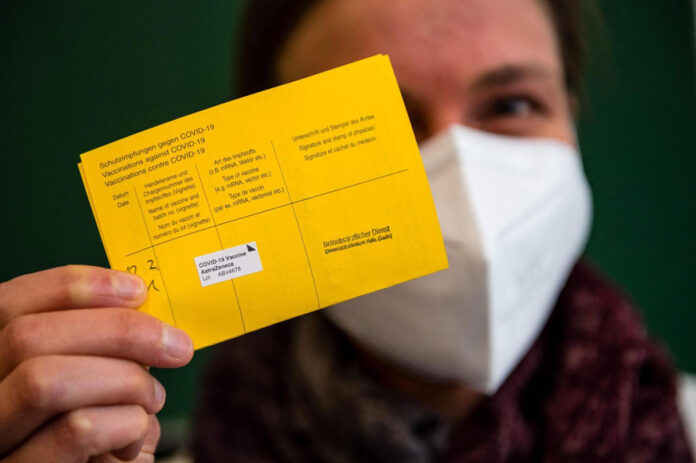Since the start of Covid-19 pandemic and all social events and gatherings have been stopped to avoid the potential infection spread that might happen due to the presence of many people in the same place, and Covid-19 is one of the fast-spreading viruses and fatal as well.
A new concept of social distancing has been common right now as a new lifestyle which pushed people to go for digital means of communication instead of in-person communication.
This phenomenon is general for all humans all over the world, in business and social life as well.
Most of business went to remote working and working from home including the healthcare industry, hospitals and healthcare companies are now trying to follow the preventive measures to secure their employees against the infection.
Healthcare exhibitions and conferences are essential to the healthcare industry and healthcare business generally where all healthcare industry stakeholders can meet, exchange knowledge, and network together to efficiently operate the healthcare ecosystem.
Healthcare events and exhibitions are the dominant way of exchanging information among the community and connect healthcare buyers with healthcare suppliers.
Healthcare events has transformed into online and virtual events which is mainly based on using digital communication technologies and online platforms to do webinars and online exhibitions.

But here we will come to an important question:
Important Questions
1- Will we continue in virtual / online events and exhibitions forever?
2- How long will we stay performing events and exhibitions virtually or on the internet?
3- If we are going back to physical events, what would be the regulations for it?
The Answer
1- Will we continue in virtual / online events and exhibitions forever?
we would answer these questions one by one in this discussion as it’s really an important topic, the answer of the first question is we will not continue to make online and virtual events forever.
Online or virtual events are a temporary substitute for physical events and virtual events till now cannot be a full solution to the physical events for all healthcare stakeholders.
we can see a lot of virtual events running right now including domestic, regional and international events, but the virtual events might not be efficient for most of healthcare professionals or business professionals.
Digital marketing in the healthcare industry has recently started and it’s not well experienced, most of the healthcare business stakeholders depend on in-person events and conferences as the main marketing tool for them.
That makes the dependence solely on virtual events or digital marketing impossible to last for a long time, but at the same time, this is a strong trigger for all healthcare business stakeholders to put digital communication and digital marketing into consideration as a backup solution in case of any undesirable circumstances like the Covid-19 pandemic.
2- How long will we stay performing events and exhibitions virtually or on the internet?
The answer of the second question is an open answer, it’s not limited by time or defined by a specific date, i think that working with virtual events will continue from now on and it is going to be developed by time, the usage of technology for operating virtual and online events will evolve and innovates new features that would help all stakeholders to benefit the maximum from virtual events, so we will witness 2 versions of the same event, physical and virtual events altogether.
Now we can see this model happening in multiple events in the Middle East and Africa like Arab Health exhibition and it’s the largest exhibition for healthcare in the Middle East region, it has both versions online and in-person events, the online event supposed to start on 23rd of May, 2021 till 22nd of July 2021 and the live event supposed to be held in the World Trade Center in Dubai and start on 21st of June, 2021 till 24th of June, 2021.
The same concept will be applied for several exhibitions and conferences like Medlab for Middle East, Medic East for east Africa, Medic west for West Africa.
It’s apparent that both versions will remain together because the live version of these events might be cancelled at any time due to the pandemic situation.
3- If we are going back to physical events, what would be the regulations for it?
The answer of the third question might be not clear till now but we will elaborate some example of what is already happening
Some events are going to happen in the upcoming months in the live version, for sure these events would consider the preventive measures and all attendees should wear the protective mask and they might spread hand sanitizers all over the place, also organizers might reduce the number of exhibitors and apply the social distancing measures to reduce the density of traffic in exhibition halls or inside the conference rooms.

HIMSS21 is considered the biggest event for the healthcare IT society in the United States, it provide also 2 versions of the event as online and live versions, the live version supposed to be held in Las Vegas on the 9th of August, 2021, and ends on 12th of August, 2021.
HIMSS2021 announced on the event website that people who would like to attend the live version of the event should provide proof of the full vaccination against Covid-19 otherwise they wouldn’t be able to attend, and instead they have the access to the online version.
Another event HLTH (Health) 2021, it’s one of the biggest events for the entire healthcare ecosystem, it’s supposed to be held in Boston on the 17th of October, 2021 and ends on the 20th of October 2021.

HLTH2021 also announced on the event website that people who would like to attend the live version of the event should provide proof of the full vaccination against Covid-19, otherwise they wouldn’t be able to attend, then they would have an alternative to attend the online version of this event.
Actually this decision from HIMSS or HLTH is facing a criticism that they exclude some people who are not vaccinated or not eligible for the vaccine from attending those events.
HIMSS and HLTH might impose this new regulation because USA is the largest country impacted with Covid-19 pandemic in terms of infection rate.
Shortcomings of the New Regulations
But we would come to a critical situation at this point, there are many reasons that might conflict with the obligation of getting the vaccine before attending events, we can list them as following:
- Not all people are eligible for vaccines because of health issues.
- Some people are afraid of the adverse effects of vaccination.
- Vaccines are not valid for a lifetime, which means people should be vaccinated periodically.
- The vaccine is still not available for everyone because of a shortage of supply.
- Vaccines are not a guarantee for protection because of variants and strains.
Preventing some people from attending these live events would impact them and for sure their businesses, many people doesn’t consider online events as an efficient substitute of live events.
At the same time we cannot guarantee the full protection of the vaccinated attendees as they are still at risk, even if it’s lower risk!
Is it Considered a Medical Apartheid?
Some countries are thinking about applying for Covid-19 passports or certificates to prove the vaccination using digital technology or in a paper format, this decision would happen to reopen all business again without fear of infection and people can practice their daily life normally.
these thoughts didn’t meet everyone’s agreement, it was criticized as unethical form of coercion and this would create a discrimination among people and their accessibility to some activities based on their medical or health papers.
The European Union is facing a lot of challenges to apply such new regulation because of many concerns like data privacy and the validity period of the vaccine and other ethical concerns.
Applying the same concept to events in healthcare or any other industry would have the same concerns and criticism, which means that these decisions should be revised wisely and consider its consequences before setting any new regulation.
What Would be the Situation in the Middle East & Africa Events?
The discussed regulations are just meant for the mentioned events, and it’s not generalized to other events anywhere, but in this article we discuss what might happen in the near future.
Till now there are no decisions or announcements regarding the upcoming events in the Middle East & Africa but there might be some instructions for that soon, organizers of events are getting prepared for any upcoming situation.
Countries in the Middle East & Africa don’t have high infection rates like other countries, but it’s still at risk because of the recurrent waves of the pandemic.
Recently, Saudi Arabia made a new decision for its residents with a new regulation that all people who would like to enter government facilities, events, celebrations, festivals and using public transportation should get coronavirus vaccine
People should have proof of vaccination through the Tawakkalna app and it will be a must for anyone who would like to do any activity in Saudi Arabia to use it.
We still don’t know if this would affect the upcoming healthcare events or not, or other countries are going to apply the same policy.
The Conclusion
The Covid-19 pandemic is causing disruption to many industries and healthcare industry is one of these, transforming business activities like exhibitions, events, and conferences to the virtual or online versions is still inefficient and considered as a temporary substitute for live events.
The pandemic situation is still not clear and we still don’t know for how long we would suffer from this pandemic and its consequences.
Getting back to normal life and holding live events for sure would come with new regulations and precautions, considering the social distancing and preventive measures will turn into a lifestyle and not a pandemic response.
Some healthcare events are trying to guarantee the safety of its attendees by setting new regulations like the vaccination proof which might be criticised by a lot of people and it has the same concerns like Covid-19 passport which is being discussed in multiple regions.
The Middle East and Africa healthcare events are still away from these discussions, but there might be any changes in the near future due to the changes in the pandemic situation in many countries.
Saudi Arabia is the first country in the Middle East to make a decision for obligatory vaccination proof to make any activity.

